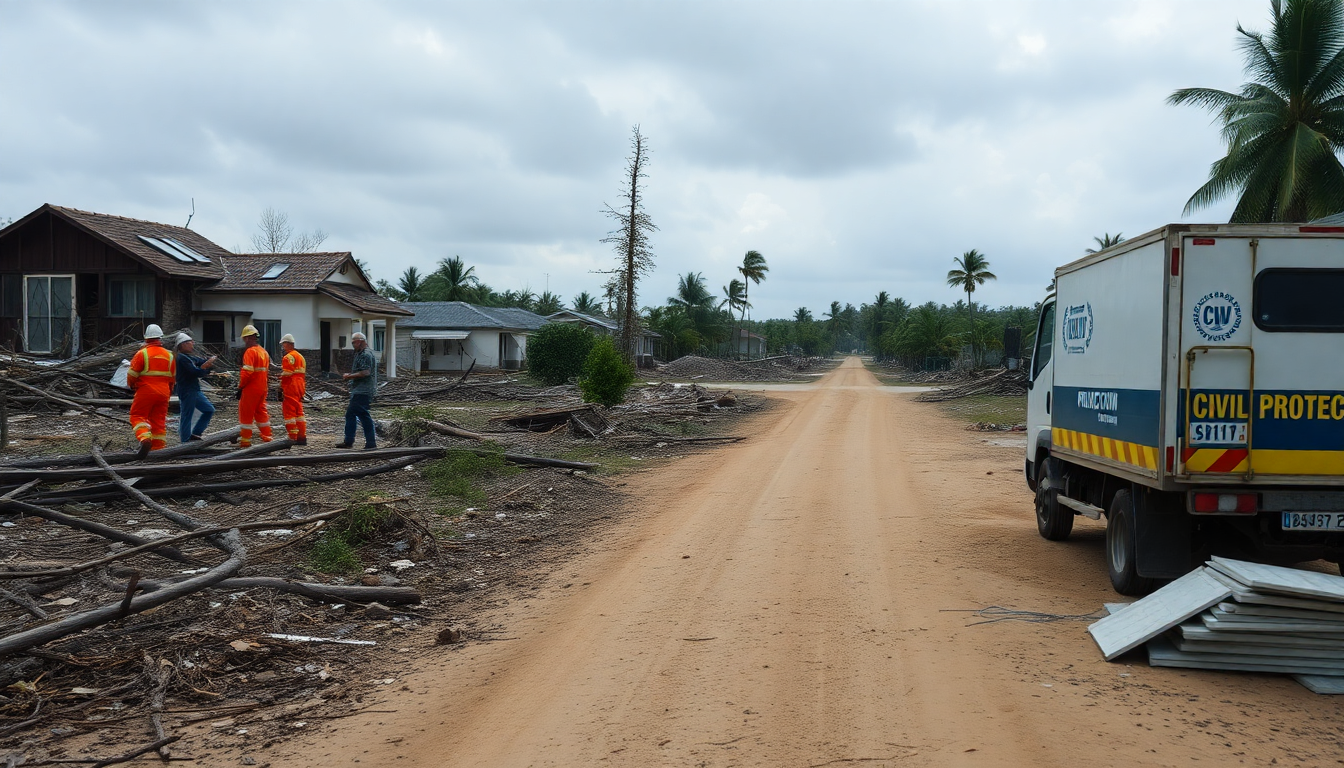Table of Contents
In the wake of Hurricane Helene, we’re not just seeing physical destruction; we’re also witnessing a tangled web of federal funding and political posturing. Communities in North Carolina and Tennessee are facing the daunting task of recovery, and the Department of Homeland Security (DHS) has stepped in with a substantial boost in resources. But what does this really mean for those affected? In this article, we’ll break down the latest funding announcements, the urgent repairs needed, and the political narratives swirling around these developments.
Federal Funding Overview
This August, the Department of Homeland Security, led by Secretary Kristi Noem, has earmarked an impressive $28 million specifically for Hurricane Helene relief. When you add that to the $124 million allocated this month alone, it’s clear that the federal government is taking action to meet the immediate needs of those affected by the storm. But how will this money be used? Administered by FEMA, these funds are essential for restoring infrastructure and getting vital services back up and running in the most impacted areas.
The focus of this funding will be on repairing roads and restoring critical infrastructure, particularly in hard-hit regions like North Carolina and Tennessee. The collapse of key transport routes, such as Interstate 40 near the state line, has not only disrupted commerce but has also complicated emergency response efforts. This highlights the pressing need for these resources, which are about more than just fixing roads—they’re tied directly to public safety and economic recovery. How can communities bounce back without reliable infrastructure?
Political Reactions and Implications
Yet, it’s important to note that the allocation of these funds has sparked a heated political debate. Critics argue that the federal response to natural disasters is often too slow and insufficient. Secretary Noem’s comments, which take aim at the Biden administration for its alleged inaction, echo a growing sentiment among some Republican leaders who feel that conservative areas are routinely overlooked when it comes to disaster relief.
Former President Donald Trump has also jumped into the fray, asserting that the government’s response has fallen short, particularly in politically conservative regions. This has ignited a larger conversation about the politicization of disaster relief, with both sides of the aisle digging in their heels on what constitutes adequate support. President Biden, on the other hand, insists that the federal response has been both timely and inclusive of all affected communities. But is this really the case?
This political backdrop adds complexity to the recovery narrative. While funds are being allocated, the ongoing debate about who deserves help and how quickly it arrives complicates the situation. The differing perspectives from various leaders illustrate the deeper ideological divides at play, which could have lasting implications for future funding and relief efforts. How will these conversations shape the recovery process moving forward?
Looking Ahead: Recovery and Future Funding
As communities start to rebuild, the spotlight will naturally shift to the long-term recovery process. The funds that FEMA has allocated are just the tip of the iceberg when it comes to restoring normalcy after Hurricane Helene. Local leaders will need to work hand-in-hand with federal agencies to ensure that these resources are used effectively. The goal is a cohesive rebuilding effort, not just a quick fix.
Moreover, the ongoing political landscape will likely play a role in future funding decisions. With the 2024 elections on the horizon, candidates may use disaster relief narratives to rally support, affecting both how much funding is allocated and how swiftly it flows. For residents, local governments, and businesses, understanding these dynamics will be crucial as they navigate the recovery process in the months and years to come. Are they prepared for the potential shifts in funding and support?
In conclusion, the response to Hurricane Helene offers valuable lessons about the intersection of disaster management and political strategy. As communities work to heal and rebuild, the experiences gained from this disaster will undoubtedly influence future policies and funding mechanisms. It’s a reminder of the importance of a unified approach that transcends political affiliations. After all, when disaster strikes, we’re all in this together. How can we ensure that future responses are more effective and equitable?


